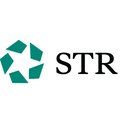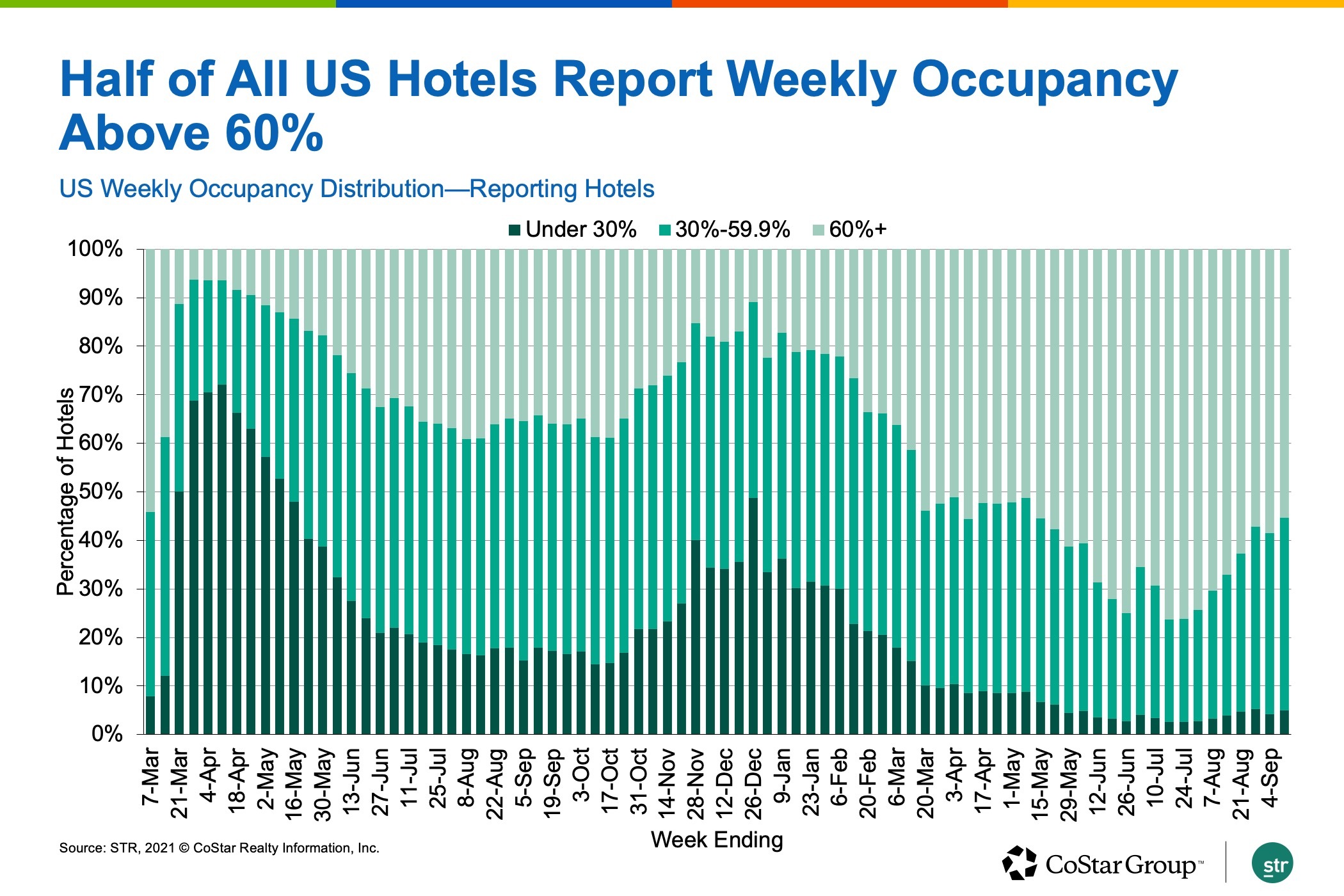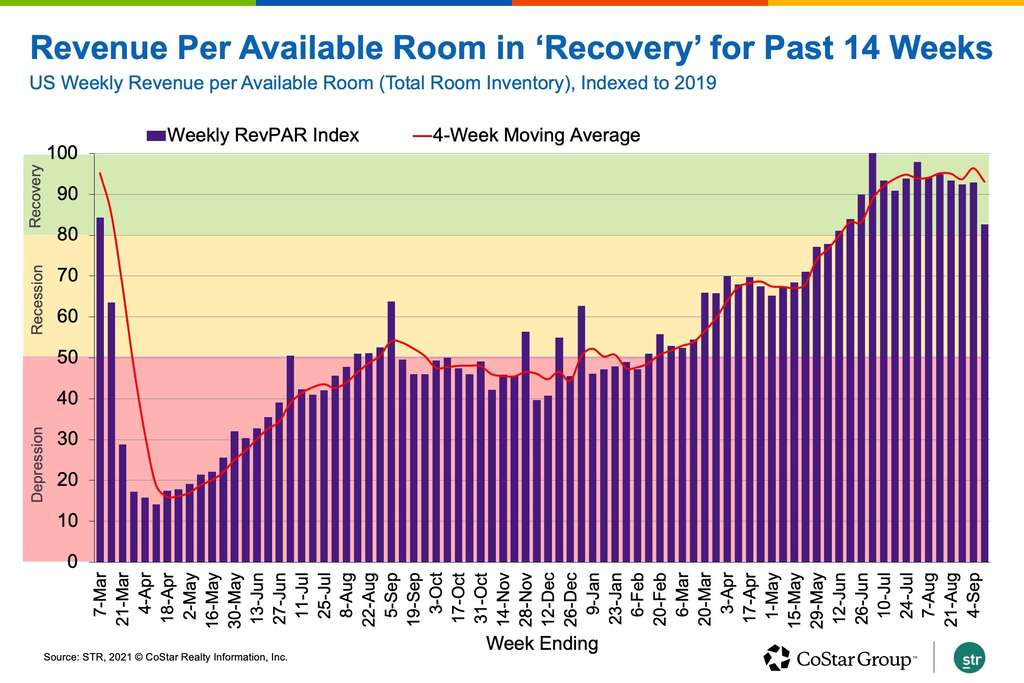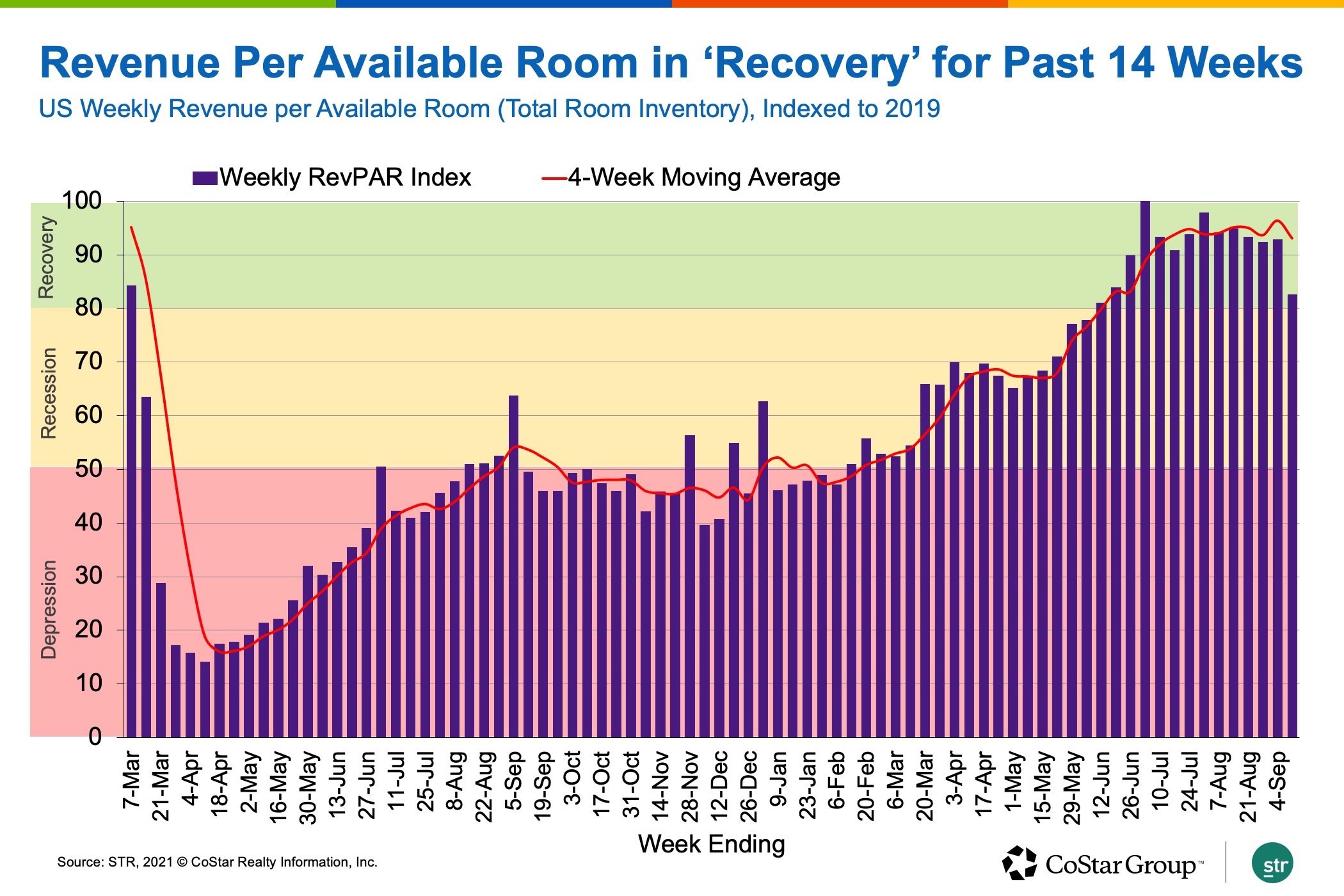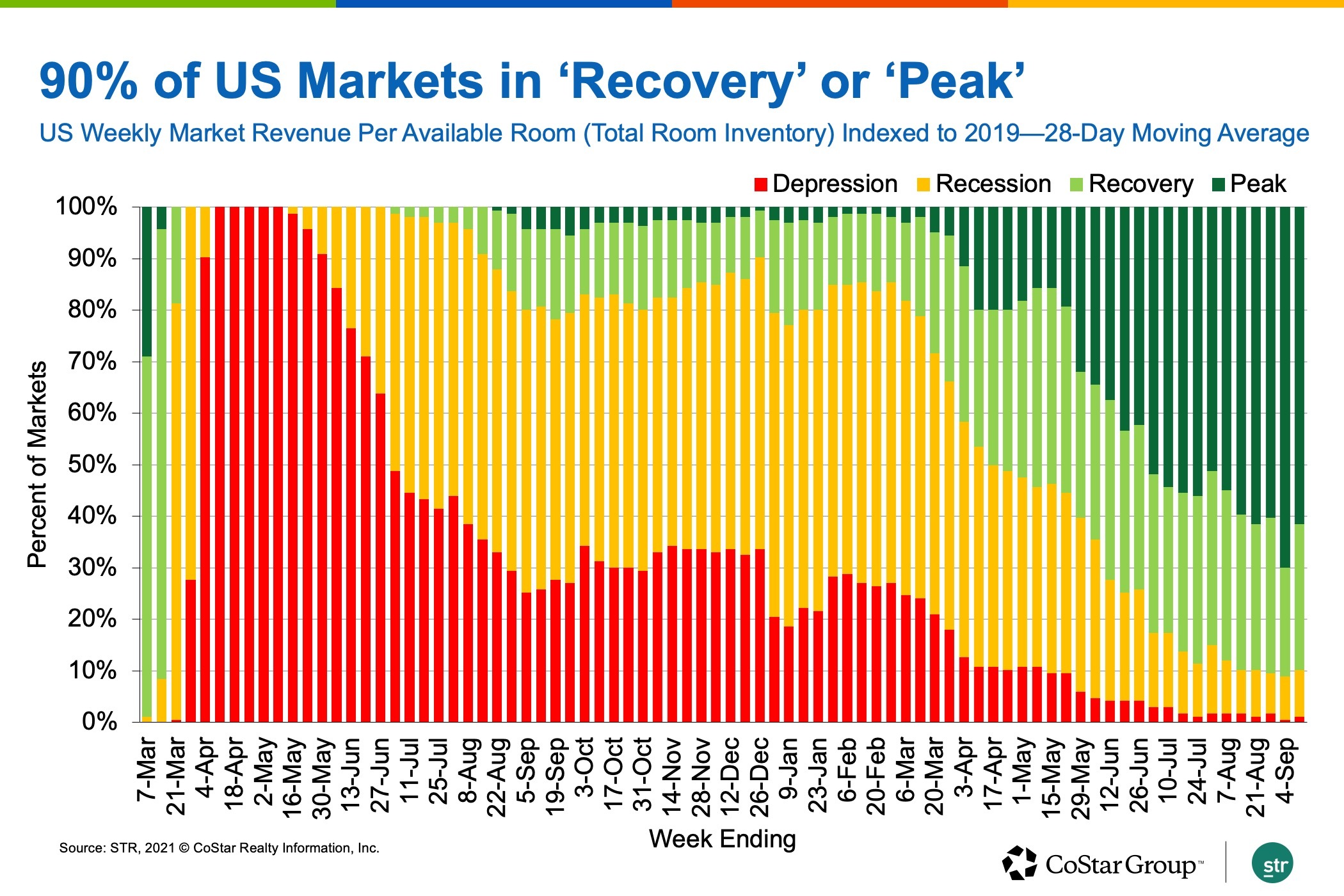NYC Hotels Have Best Week of Pandemic
US Hotel Industry Demand Declines Overall Post-Labor Day
New York City’s hotel market had its best week in terms of occupancy in a year and a half, with more than half a million room nights sold for only the second time since the start of the pandemic, despite decreasing hotel demand overall in the U.S. post-Labor Day.
Slow-to-return business and group travel continues to drag out the U.S. hotel industry’s recovery from the demand crisis perpetuated by the COVID-19 pandemic, failing to make up for a reduction in leisure travel, which has driven the recovery, particularly in the summer months.
Labor Day weekend, traditionally marking the end of summer leisure season in the U.S., set a record this year for hotel demand, with more than 12.1 million rooms sold over the three-day weekend, according to data from STR, CoStar’s hospitality analytics firm. The previous record was set in 2018.
The total U.S. figures were boosted by performance in markets in and surrounding Louisiana due to lingering impacts from Hurricane Ida, but to a lesser extent than in the previous week. Even excluding those markets, demand during the Labor Day weekend was at a record high.
In the week after, ending on Sept. 11, hotels sold 23.2 million rooms, which was 500,000 fewer than the previous weekly total. Hotel room demand for the week was 88% of what it was in 2019, and the lowest level of the past 14 weeks.
U.S. hotel occupancy for the week was 60%, and for the weekend was 70.6%. Over the weekend, more than half of all U.S. markets beat 2019 demand levels.
In New York City, where hotel performance has been near the bottom compared to other U.S. markets during the pandemic, the return of live theater to Broadway and the U.S. Open Tennis Championship drove demand. Temporarily closed hotel rooms are still a factor in the market, and occupancy on a total-room-inventory basis was 62%, down from 64% during Labor Day weekend.
For the week, the New York City hotel market sold 512,749 room nights. The only other time during the pandemic that the market has surpassed 500,000 room nights in a week was during the week of July 24, with 500,138.
Most markets reported declines in demand, but other notable exceptions were New Orleans and Denver. New Orleans hotels had the largest weekly demand gain with progressive growth each day.
Comparisons to 2019 were hurt by the timing of the Jewish holiday Rosh Hashanah, which in 2019 occurred in late September and early October. As a result, the comparable week in 2019 enjoyed strong business travel, which was missing this year.
At the property level, 55% of hotels reported occupancy above 60% for the week, which is the lowest percentage since mid-May. For the weekend, 74% of hotels had occupancy above 60%, and 25% reported occupancy above 90%.
After rising in the previous week, average daily rate dropped 1.6% week over week, and was 99% of what it was during the same week in 2019 — the first time it has indexed below 100% since the end of June. Adjusted for inflation, ADR was 93% of the 2019 level, as 48% of U.S. markets beat their 2019 rates for the week.
Revenue per available room on a total-room-inventory basis, which accounts for temporarily closed hotels, declined 4% during the week, and was 83% of what it was for the comparable week in 2019.
According to STR’s Market Recovery Monitor, 70% of all markets were at “peak,” with total-room-inventory RevPAR more than what it was in 2019, or in "recovery," with total-room-inventory RevPAR between 80% and 100% of 2019. Total-room-inventory U.S. RevPAR has been in the “recovery” zone for the past 14 weeks.
On a 28-day-moving average, RevPAR was 93% of the 2019 level, with 90% of all markets in “recovery” or “peak.”
The Florida Keys and Daytona Beach led all markets and occupied the top two spots in performance; San Francisco and San Jose remained at the bottom.
Isaac Collazo is VP Analytics at STR.
This article represents an interpretation of data collected by CoStar's hospitality analytics firm, STR. Please feel free to contact an editor with any questions or concerns. For more analysis of STR data, visit the data insights blog on STR.com.
About STR
STR provides premium data benchmarking, analytics and marketplace insights for the global hospitality industry. Founded in 1985, STR maintains a presence in 15 countries with a corporate North American headquarters in Hendersonville, Tennessee, an international headquarters in London, and an Asia Pacific headquarters in Singapore. STR was acquired in October 2019 by CoStar Group, Inc. (NASDAQ: CSGP), the leading provider of commercial real estate information, analytics and online marketplaces. For more information, please visit str.com and costargroup.com.
